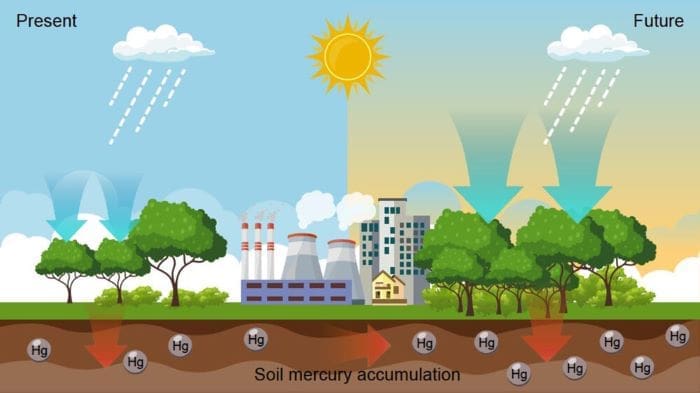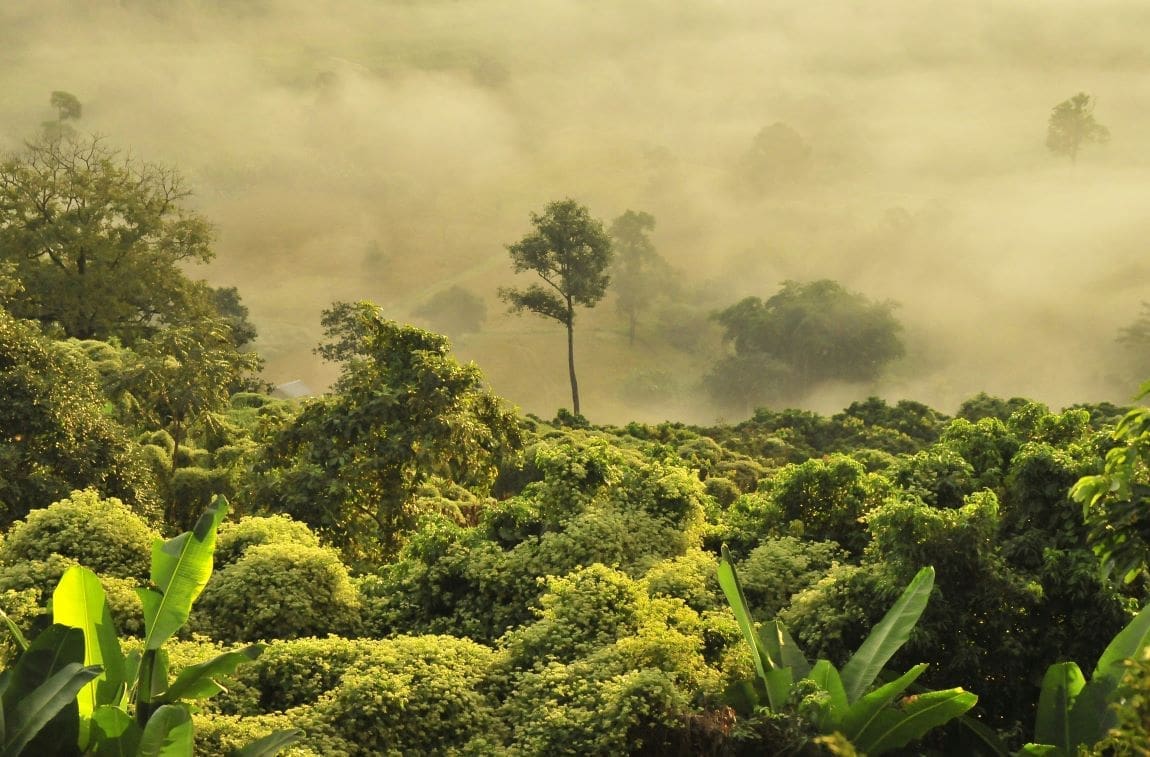A new study highlights a concerning connection between climate change and rising mercury levels in soil, suggesting that current global efforts to control mercury emissions may not be sufficient.
Published in the journal Environmental Science & Technology by the American Chemical Society (ACS), the research reveals that soil may store significantly more mercury than previously believed and that climate-driven increases in vegetation could further exacerbate this problem.

Mercury is a toxic environmental pollutant that circulates through the atmosphere, water, and soil, accumulating in plants and animals.
While the Minamata Convention on Mercury, which took effect in 2017, aims to reduce mercury emissions and limit exposure globally, the new study indicates that these measures may fall short as climate change alters mercury dynamics.
The research team, led by Xuejun Wang and Maodian Liu, compiled nearly 19,000 soil mercury measurements from previous studies to create one of the largest datasets of its kind. By feeding this data into a machine learning algorithm, the scientists estimated that the top 40 inches (approximately 1 meter) of global soil contain around 4.7 million tons of mercury – double some earlier estimates.
The study found the highest concentrations of mercury in plant-dense regions like the tropics, permafrost areas, and locations with high human activity. In contrast, less vegetated areas such as shrublands and grasslands showed relatively low soil mercury levels.
The researchers also explored how future climate scenarios could impact soil mercury levels. As global temperatures rise, increased vegetation growth could lead to higher mercury deposits in soil, particularly as plants decompose. This process could offset the benefits of current mercury control strategies, emphasizing the need for stricter and more comprehensive measures to manage both mercury and carbon dioxide emissions.
The findings underscore the complex and interlinked nature of environmental issues, where efforts to combat one problem, like climate change, can inadvertently exacerbate another. The study calls for further research and long-term strategies to address the dual threats of mercury pollution and global warming.
***
The American Chemical Society (ACS) is a nonprofit organization chartered by the U.S. Congress. ACS’ mission is to advance the broader chemistry enterprise and its practitioners for the benefit of Earth and all its people. The Society is a global leader in promoting excellence in science education and providing access to chemistry-related information and research through its multiple research solutions, peer-reviewed journals, scientific conferences, eBooks and weekly news periodical Chemical & Engineering News.
Journal Reference:
Wenzhe Guo, Maodian Liu, Qianru Zhang, Yidan Deng, Zhaohan Chu, Hehao Qin, Yangmingkai Li, Yu-Rong Liu, Haoran Zhang, Wei Zhang, Shu Tao and Xuejun Wang, ‘Warming-Induced Vegetation Greening May Aggravate Soil Mercury Levels Worldwide’, Environmental Science & Technology (2024). DOI: 10.1021/acs.est.4c01923 | https://doi.org/10.1021/acs.est.4c01923
Article Source:
Press Release/Material by American Chemical Society (ACS)
Featured image: Tropical jungles currently contain some of the highest levels of mercury in their soil, according to new estimates. Credit: Boudewijn Huysmans | Unsplash




